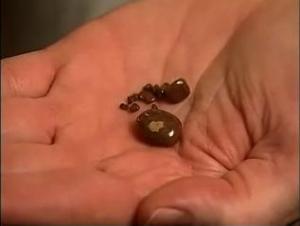 Menopause and the appropriate way to handle symptoms continues to be a lively topic of conversation. Much of this discussion is based on findings from the landmark Women's Health Initiative Trial that was launched in 1991 and consisted of a set of clinical trials and an observational study, which together involved 161,808 generally healthy postmenopausal women. The clinical trials were designed to test the effects of postmenopausal hormone therapy, diet modification, and calcium and vitamin D supplements on heart disease, fractures, and breast and colorectal cancer. The initial studies were closed in 2002 when the risks of hormone replacement therapy appeared to outweigh the benefits, though this led to a round of controversy about the study design and the age of the study subjects that continues today. As a result, the data from this huge study continues to be explored and new conclusions drawn.
Menopause and the appropriate way to handle symptoms continues to be a lively topic of conversation. Much of this discussion is based on findings from the landmark Women's Health Initiative Trial that was launched in 1991 and consisted of a set of clinical trials and an observational study, which together involved 161,808 generally healthy postmenopausal women. The clinical trials were designed to test the effects of postmenopausal hormone therapy, diet modification, and calcium and vitamin D supplements on heart disease, fractures, and breast and colorectal cancer. The initial studies were closed in 2002 when the risks of hormone replacement therapy appeared to outweigh the benefits, though this led to a round of controversy about the study design and the age of the study subjects that continues today. As a result, the data from this huge study continues to be explored and new conclusions drawn.
Just this week, two blogs came across my desk that I thought were well written and worth sharing. The first came from CNN (click HERE) and provides a comprehensive look at the background and questions that surround this issue. The second is a blog (click HERE) from the Loyola University Health System that addresses concerns that women just entering perimenopause have with some quick suggestions to ease the way.
Enjoy and let me know if you found them helpful!

 Researchers at the University of Texas Southwestern Medical Center report that estrogen therapy after menopause increases a woman's chances of developing kidney stones. Kidney stones are common among postmenopausal women, affecting between 5% and 7% of the population in the U.S. Up until now, only observational studies have been done looking at kidney stones and estrogen, and the results have been conflicting. This study shows new evidence based on a randomized, placebo-controlled trial.
Researchers at the University of Texas Southwestern Medical Center report that estrogen therapy after menopause increases a woman's chances of developing kidney stones. Kidney stones are common among postmenopausal women, affecting between 5% and 7% of the population in the U.S. Up until now, only observational studies have been done looking at kidney stones and estrogen, and the results have been conflicting. This study shows new evidence based on a randomized, placebo-controlled trial.